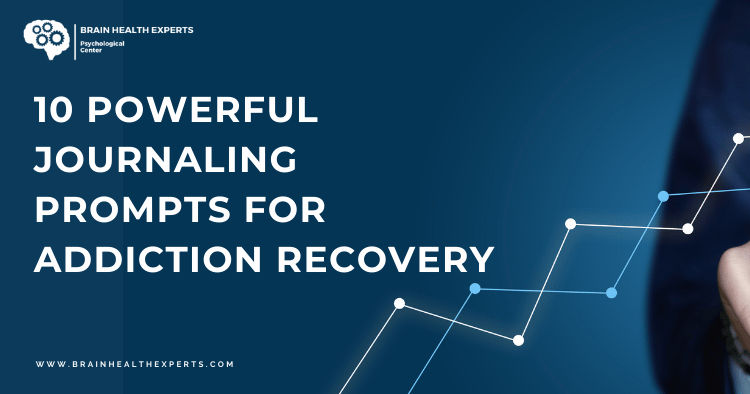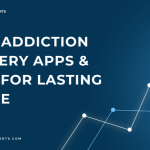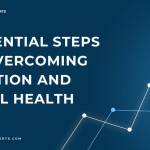Table of Contents
- Introduction
- Why Journaling is Beneficial for Addiction Recovery
- Prompt 1: What Triggers My Cravings?
- Prompt 2: How Do I Feel Today?
- Prompt 3: What Are My Goals for Recovery?
- Prompt 4: Who Supports My Recovery Journey?
- Prompt 5: What Healthy Coping Mechanisms Can I Use?
- Prompt 6: Reflecting on My Progress
- Prompt 7: What Do I Love About Myself?
- Prompt 8: My Vision for the Future
- Prompt 9: How Do I Handle Setbacks?
- Prompt 10: What Are My Triggers for Relapse?
- Conclusion
- FAQs
Introduction
Journaling can be a powerful tool in the journey of addiction recovery. It provides a safe space to explore your thoughts, feelings, and experiences. By putting pen to paper, you can gain clarity, develop self-awareness, and foster a deeper understanding of your triggers and motivations. In this article, we’ll explore 10 powerful journaling prompts designed specifically for those in recovery. Whether you’re just starting or are well on your way, these prompts will help you reflect, grow, and stay committed to your journey.
“Writing is an exploration. You start from nothing and learn as you go.” – E. L. Doctorow
Why Journaling is Beneficial for Addiction Recovery
Journaling offers numerous psychological benefits that can significantly aid in addiction recovery:
- Self-Reflection: Writing about your emotions and experiences can help you understand your triggers and the patterns in your behavior.
- Emotional Release: Journaling allows you to express feelings that might be difficult to articulate verbally.
- Goal Setting: It helps in setting and tracking your recovery goals, making the process more tangible and achievable.
- Stress Reduction: Regularly writing about your thoughts can alleviate stress and anxiety, reducing the likelihood of relapse.
For additional insights on enhancing your mental health through journaling, check out 10 Positive Thinking Techniques to Reduce Stress.
Prompt 1: What Triggers My Cravings?
Identifying triggers is a crucial step in addiction recovery. In your journal, write about situations, feelings, or people that ignite your cravings.
- Example: “When I feel stressed at work, I crave alcohol as a way to cope.”
Understanding these triggers can help you develop strategies to avoid or confront them when they arise.
“Awareness is the first step in overcoming any addiction.”
Prompt 2: How Do I Feel Today?
Take a moment to check in with yourself. Write about your current emotional state. Are you feeling anxious, happy, or overwhelmed?
| Emotion | Description |
|---|---|
| Happy | I feel optimistic because I had a productive day at work. |
| Anxious | I’m worried about an upcoming family event. |
By regularly assessing your feelings, you can better understand how they influence your recovery journey.
“Feelings are just visitors. Let them come and go.”
Prompt 3: What Are My Goals for Recovery?
Setting clear goals can provide direction in your recovery journey. In your journal, outline your short-term and long-term recovery goals.
- Short-Term Goal: Attend a support group meeting once a week.
- Long-Term Goal: Achieve one year of sobriety.
Having specific, measurable goals can keep you motivated and focused. For more on goal-setting strategies, refer to 10 Key Strategies for Effective Goal Setting Success.
“A goal without a plan is just a wish.” – Antoine de Saint-Exupéry
Prompt 4: Who Supports My Recovery Journey?
List the people in your life who support your recovery. These can include family, friends, or support group members.
Example: “My sister has been my anchor; she listens to me without judgment.”
Recognizing your support system can remind you that you are not alone in this journey.
“Surround yourself with people who lift you higher.”
Prompt 5: What Healthy Coping Mechanisms Can I Use?
Instead of turning to substances, explore healthy coping strategies. Write about activities that help you manage stress and cravings.
| Coping Mechanism | Description |
|---|---|
| Exercise | Going for a run helps clear my mind. |
| Meditation | Practicing mindfulness reduces my anxiety. |
By identifying these alternatives, you can better navigate challenging moments. You may also find helpful techniques in 10 Proven Stress Management Techniques for Daily Relief.
“The best way out is always through.” – Robert Frost
Prompt 6: Reflecting on My Progress
Take a moment to reflect on how far you’ve come. Write about your achievements and the changes you’ve noticed in yourself.
Example: “I’ve gone three weeks without a drink, and I feel more energetic and focused.”
Celebrating small wins can boost your confidence and reinforce your commitment to recovery.
“Progress is impossible without change, and those who cannot change their minds cannot change anything.” – George Bernard Shaw
Prompt 7: What Do I Love About Myself?
Self-love is essential in recovery. Write about the qualities you appreciate in yourself.
Example: “I am resilient and capable of change.”
Focusing on your strengths can enhance your self-esteem and motivation. For more on boosting self-esteem, check out 10 Powerful Tips to Boost Your Self-Esteem Today.
“You are enough just as you are.” – Brené Brown
Prompt 8: My Vision for the Future
What do you envision for your life after recovery? Write about your hopes and dreams.
- Example: “I see myself leading a fulfilling life, perhaps working in a field that helps others.”
Creating a vision for your future can serve as a powerful motivator.
“The future belongs to those who believe in the beauty of their dreams.” – Eleanor Roosevelt
Prompt 9: How Do I Handle Setbacks?
Setbacks are a part of any recovery journey. In your journal, describe how you cope with challenges.
- Example: “When I slip up, I remind myself that it’s a learning opportunity, not a failure.”
Developing a healthy perspective on setbacks can help you stay resilient.
“Our greatest glory is not in never falling, but in rising every time we fall.” – Confucius
Prompt 10: What Are My Triggers for Relapse?
Similar to identifying initial cravings, recognizing relapse triggers is essential. Write about situations or emotions that lead you to consider returning to substances.
- Example: “I feel the urge to relapse when I’m around old friends who drink.”
By acknowledging these triggers, you can prepare yourself to handle them constructively. For more insights on recognizing and managing triggers, check out 10 Effective Strategies for Building Resilience in Mental Health.
“The best way to predict the future is to create it.” – Peter Drucker
Conclusion
Journaling is an invaluable tool for those navigating the complexities of addiction recovery. These prompts encourage self-reflection, emotional exploration, and goal setting, all of which can enhance your recovery journey. Remember, recovery is not a linear path, and it’s perfectly okay to have ups and downs. By regularly engaging with these prompts, you can build resilience and maintain your commitment to a healthier, substance-free life.
“Recovery is not for people who need it. It’s for people who want it.”
FAQs
- How often should I journal during my recovery?
There’s no set rule! Many find it beneficial to journal daily, while others prefer a few times a week. It’s about what feels right for you. - What if I don’t know how to start journaling?
Start with just a few sentences or bullet points. The prompts provided can guide you.





